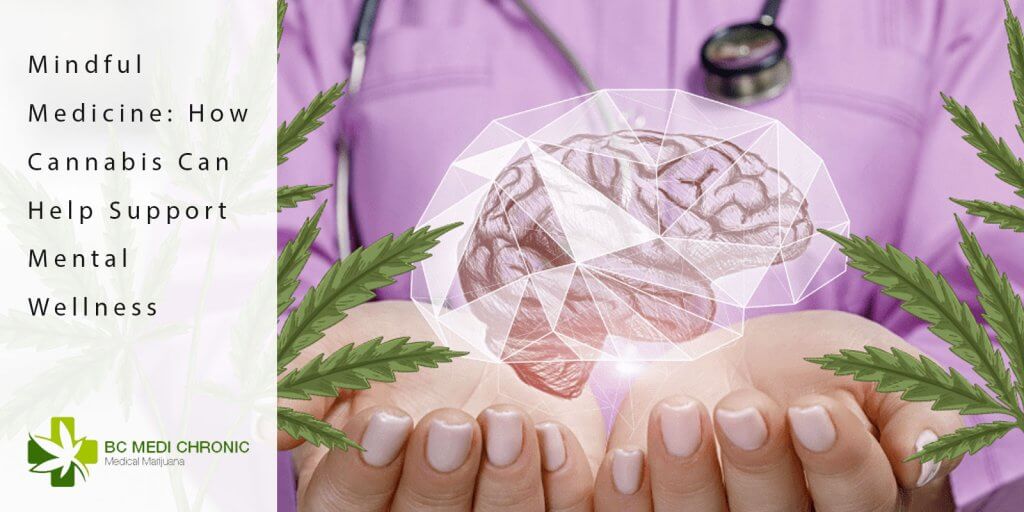In today’s fast-paced world, mental well-being is becoming increasingly important, leading people to explore alternative approaches to support it. One such emerging method is the use of cannabis. While traditionally associated with recreational use, cannabis is now gaining recognition for its potential in enhancing mental health. This article explores the role of cannabis in mental wellness and its mindful application as a self-care tool. We’ll examine its mechanisms, the diverse range of cannabis products, and the vital considerations to weigh before incorporating cannabis into your wellness regimen. Join us as we embark on a journey into the intriguing realm of mindful medicine and unveil the potential of cannabis in nurturing mental well-being.
Understanding Mental Wellness
Mental wellness, also known as mental well-being, represents a state of emotional and psychological health characterized by a positive sense of mental and emotional equilibrium. It entails the capacity to adeptly handle life’s challenges, effectively manage stress, sustain meaningful relationships, and foster a sense of overall contentment and resilience. Strong mental wellness extends beyond the mere absence of mental health problems, encompassing emotions like happiness, self-assuredness, and emotional stability, ultimately enriching one’s life with fulfillment and gratification.
The Potential Benefits of Cannabis for Mental Wellness
Cannabis may offer these mental wellness benefits:
- Anxiety Relief: Some cannabis strains high in CBD can help reduce anxiety, promoting calmness.
- Stress Management: Cannabis can help you relax and think clearly, reducing overall stress.
- Improved Mood: Users report increased happiness and euphoria, potentially aiding mild to moderate depression.
- Better Sleep: Certain strains, rich in CBN, might improve sleep quality and duration.
- Cognitive Enhancement: Cannabis can boost creativity, focus, and mental sharpness for some.
- Pain Reduction: It has pain-relieving properties that ease discomfort and lower pain-related stress.
- Mindful Relaxation: Mindful cannabis use can enhance relaxation and mindfulness, reducing racing thoughts.
- Social Connection: Cannabis can aid social interaction, reducing isolation.
- Coping with Trauma: Some with PTSD report symptom relief and better coping through cannabis.
Different Types of Cannabis Products for Mental Wellness
When considering cannabis for mental wellness, there are various product types, each with unique advantages. Common cannabis products include dried flower (buds), oils, tinctures, edibles, and topicals.
- Dried flower is often smoked or vaporized for rapid relief. Smoking or vaporizing allows cannabinoids to enter the bloodstream quickly, providing fast effects.
- Oils and tinctures are liquid extracts taken orally or sublingually (under the tongue) for longer-lasting results, favoured by those who prefer not to smoke.
- Edibles like gummies or baked goods offer a discreet way to consume cannabis. They have a slower onset and longer duration as cannabinoids are metabolized by the liver, making them suitable for a prolonged experience.
- Topicals, such as creams and lotions, are applied directly to the skin for localized relief from pain, inflammation, and skin issues. While topicals don’t create psychoactive effects, they can still benefit mental wellness, especially when combined with other forms of cannabis.
Dosage and Consumption Methods for Cannabis
When using cannabis for mental wellness, finding the correct dosage and consumption method is essential. Dosage needs vary based on individual tolerance, desired effects, and the product used. Starting with a low dose and adjusting gradually is advisable. Consumption methods impact how cannabis affects the body and mind; smoking or vaporizing offer quick onset but shorter duration, while oral methods like oils or edibles have a slower onset but longer-lasting effects. Sublingual consumption allows faster absorption. Experimenting with these methods helps individuals discover their preferred approach.
Possible Side Effects and Precautions
While cannabis can offer potential benefits for mental wellness, it’s crucial to consider possible side effects and precautions. Common side effects include dry mouth, red eyes, increased heart rate, and impaired coordination, typically temporary and fading as the cannabis wears off. Those with a history of mental health conditions should exercise caution due to potential medication interactions or symptom exacerbation. Consulting a healthcare professional before integrating cannabis into a mental wellness routine, particularly with existing conditions or other medications, is advisable.
Conclusion
As the world embraces alternative approaches to mental wellness, cannabis emerges as a potential self-care tool. With its potential to alleviate symptoms of anxiety, depression, PTSD, and insomnia, cannabis provides a natural support option. However, it’s crucial to approach cannabis mindfully, considering dosage, consumption methods, and potential side effects. As research in this field expands, we can gain a better understanding of how cannabis fits into mental wellness routines, offering a holistic approach to overall well-being. If you’re considering cannabis for your mental wellness journey, consult with a healthcare professional for safe and effective use. Visit BCMedichronic.co online dispensary for all your cannabis needs.

